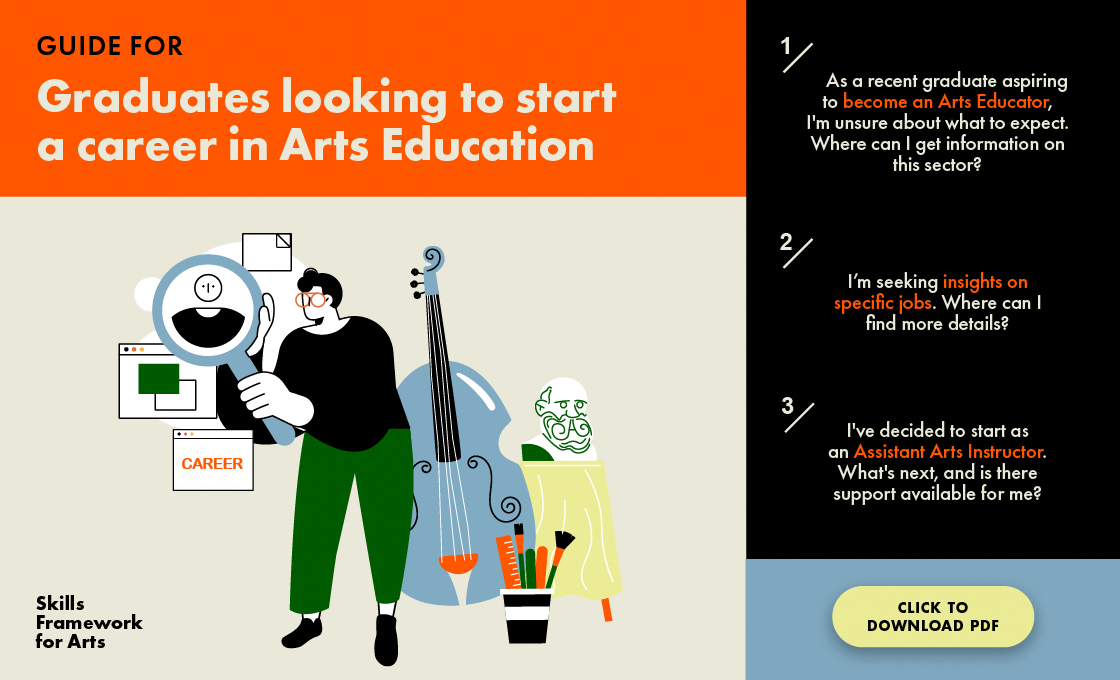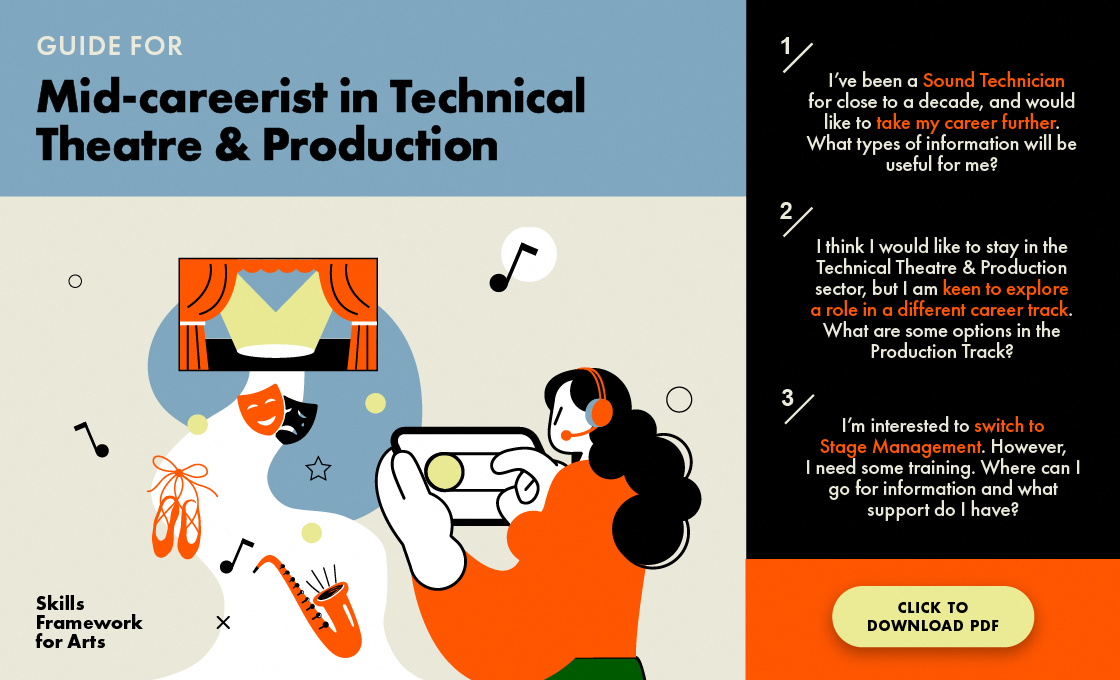The Skills Framework is a SkillsFuture initiative developed for the Singapore workforce to promote skills mastery and lifelong learning. Jointly developed by the National Arts Council and SkillsFuture Singapore, together with employers, industry associations and unions, education and training providers and individual arts practitioners, the Skills Framework for Arts provides useful information on:
- Sector Information
- Career Pathways
- Job Roles and their Key Tasks and Functions
- Existing and Emerging Skills
With the Skills Framework, individuals are equipped to make informed decisions about career choices, as well as take responsibility for skills upgrading and career planning.
Assess Career Interests |
|
Prepare for Desired Jobs |
|
Find Avenues to Close Skills Gaps |
|
Renew, Upgrade and Deepen Skills |
|
Here are some examples on how you can use the framework as an individual:


The Skills Framework can also be utilised by:
Employers |
|
Training Providers |
|
Download the Skills Framework for Arts (Technical Theatre and Production)
For more information on the Skills Framework, visit https://www.skillsfuture.gov.sg/skills-framework/arts


